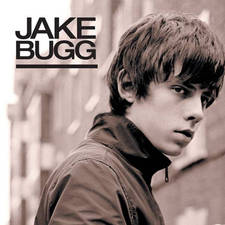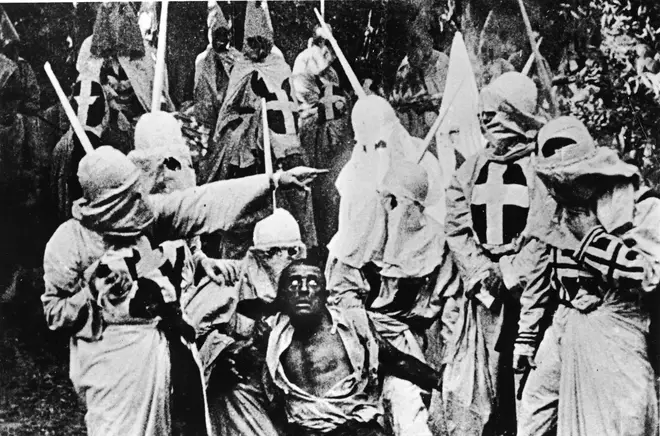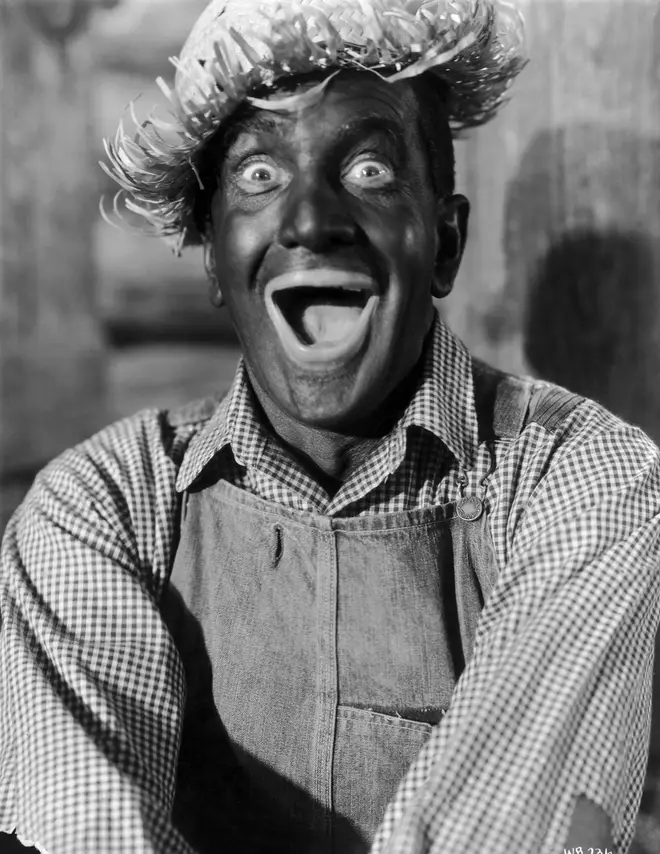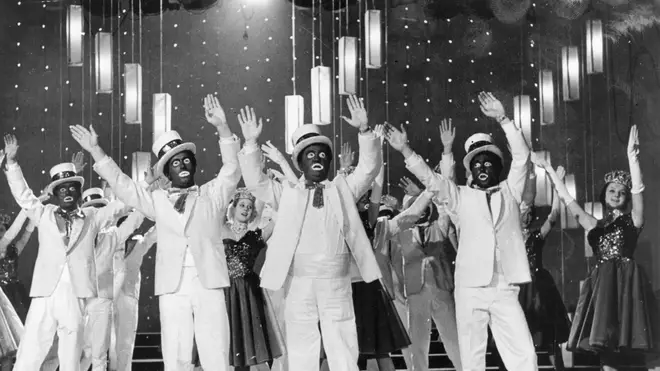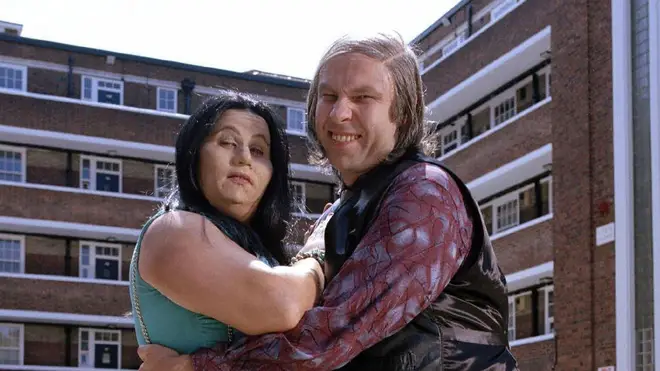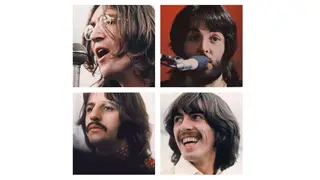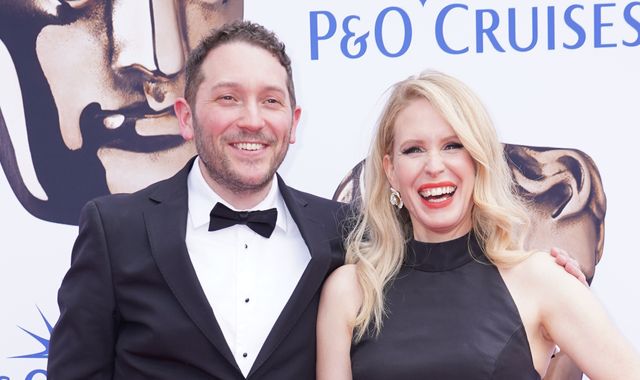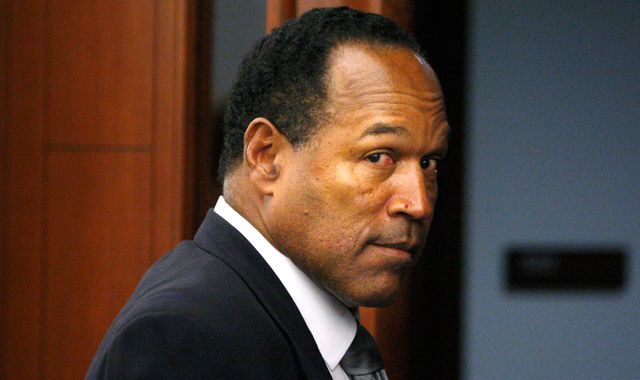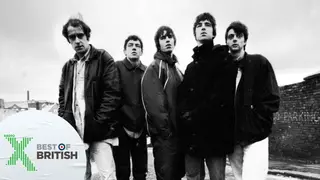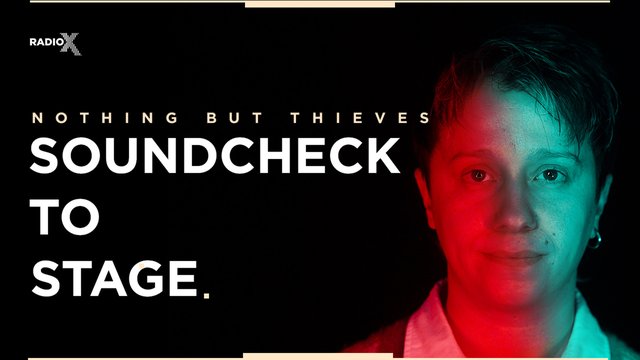Why has Little Britain been removed from streaming platforms?
10 June 2020, 18:32 | Updated: 10 June 2020, 20:44
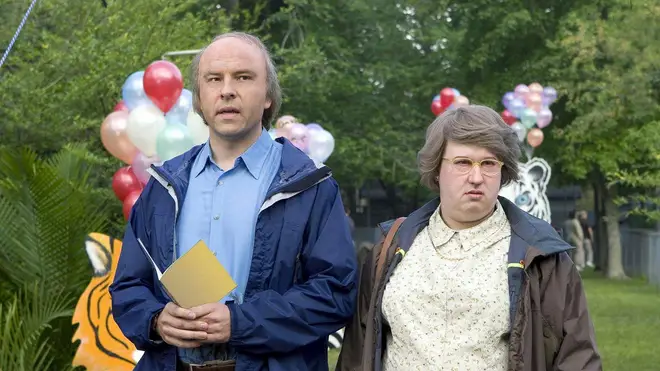
This week saw Matt Lucas and David Walliams' comedy sketch show removed from the likes of iPlayer and Netflix due to blackface. Find out why the show has been deemed offensive.
This week has seen Little Britain removed from streaming sites in light of the Black Lives Matter protests, which were sparked by the death of George Floyd.
The comedy series - created by and starring Matt Lucas and David Walliams - started its life as a radio series between 2000 and 2002 before it was first launched onto our screens in 2003. The show saw great success and ran until 2007 - with various television specials taking place throughout the years including BBC's The Big Night In this April.
However, nearly two decades since it first appeared on TV, the comedy sketch show has now been removed from BBC iPlayer, Netflix and Britbox due to its depiction of black characters, which is considered to be blackface by many.
A spokesman for the BBC told the Daily Mail: "There's a lot of historical programming available on BBC iPlayer, which we regularly review. Times have changed since Little Britain first aired so it is not currently available on BBC iPlayer."
Come Fly With Me - which also sees Matt Lucas adopt black characters - has also been removed.
While some have found Little Britain's use of stereotypical characters offensive in the past, other fans have questioned why the show - which depicts characters of all races - needed to be removed from streaming sites.
We look into some of the reasons why here.
WATCH: Leigh Francis apologises for "offensive" portrayals of black stars on Bo' Selecta!
Why has Little Britain been removed from streaming platforms?
-
The use of blackface
Has @davidwalliams ever apologised for doing Blackface in Little Britain? Coz it seems like everyone has forgotten that he did, so here’s a reminder pic.twitter.com/USeMfW7SV3
— Asa Haynes ✊🏾 (@Asa_Haynes) June 5, 2020Little Britain saw David Walliams portray the character of Desiree DeVere (pictured above), which many deemed offensive.
Though the pair arguably depict characters from all walks of life, the act of blackface or dressing up and darkening ones skin to portray a black person has a history which is deeply rooted in racism and slavery.
Actors costumed in the full regalia of The Ku Klux Klan surround a white actor in blackface in The Birth Of A Nation. Picture: Hulton Archive/Getty Images In the US, blackface became popular after the Civil War and the abolition of slavery in 1865 - as white performers wished to play characters that dehumanised and demeaned African Americans.
1915 silent film The Birth of a Nation depicted African Americans as stupid, savage and sexually predatory towards white women, while the Ku Klux Klan were portrayed as a heroic force. Despite a campaign from the NAACP to ban the film, it went on to be a huge commercial success and known as a landmark film of its time.
Blackface also found its way into popular films such as 1927's The Jazz Singer, with actors such as Al Jonson being revered for his depiction.
Al Jolson performing in blackface in The Jazz Singer. Picture: Keystone-France/Gamma-Keystone via Getty Images The darkening of male actors' skin for blackface was usually achieved by using boot polish, grease paint or burnt cork, while exaggerated whites were drawn around their eyes and lips.
However, this wasn't just an American pastime.
The Black and White Minstrel Show in 1967. Picture: Evening Standard/Getty Images In the UK the most popular iteration of blackface was found in The Black and White Minstrel Show- a hugely popular British light entertainment programme, which ran for twenty years on BBC prime-time television from 1958.
The show saw performers don a similar makeup and appearance to those across the pond, but in its first nine years it was broadcast in black and white, so the performers actually wore red makeup because it showed up better on TV.
The show faced criticism for its offensive characterisations of black men and in 1967 the Campaign Against Racial Discrimination handed a petition to the BBC calling for the show to be cancelled.
In 1969, The Black and White Minstrel Show was replaced by Music, Music, Music - which saw the minstrels appear without their blackface makeup. However, after one series the original programme returned.
The Black and White Minstrel Show was eventually cancelled in 1978, but a touring version of it continued into the late 80s.
While the boot polish of traditional blackface has long been replaced by textured wigs, makeup and fake tan, many still find it a painful reminder of the dehumanising pastime, which has roots that go deep into our cultural history.
-
The use of stereotypical or other offensive characters
Matt Lucas and David Walliams star in Little Britain. Picture: PA/BBC Elsewhere in the show, Matt Lucas and David Walliams showcased characters such as a Thai bride named Ting Tong (pictured above), a racist weight loss coach Majorie Dawes and the xenophobic homophobe Maggie Blackamoor- whose name itself could be seen as an ironic and offensive play on words. It has also been accused of mocking the trans community with its "I'm a Lady" sketch.
In an interview with the Big Issue in 2017, Lucas looked back over his characters and said: "If I could go back and do Little Britain again, I wouldn't make those jokes about transvestites. I wouldn't play black characters.
"Basically, I wouldn't make that show now. It would upset people. We made a more cruel kind of comedy than I'd do now."
He went on: "Society has moved on a lot since then and my own views have evolved. There was no bad intent there - the only thing you could accuse us of was greed. We just wanted to show off about what a diverse bunch of people we could play."
If you would like to donate to or support the Black Lives Matter cause, here's some links you can visit below:
The official Black Lives Matter campaign
The George Floyd Memorial Fund
The Ahmaud Arbery Memorial Fund
The Stephen Lawrence Charitable Trust
